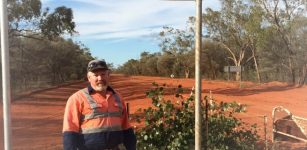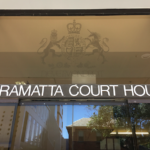An Unfair Dismissal? An Interview with Former Police Constable Hugh Brennan

We’ve reported on a number of police officers who’ve engaged in crime, corruption and other forms of misconduct, yet still been allowed to remain on the NSW Police Force.
There are currently hundreds of officers on the NSW force with criminal convictions against their names, and others who are allowed to keep their badges despite being captured on CCTV footage brutalising and humiliating members of the public.
But there are also officers out there who lose their jobs over incidents that many feel does not warrant such a harsh penalty. Police are often called out to violent situations and they’re expected to make snap decisions when dealing with people in a volatile state – and that’s not always easy.
A brawl at the Leagues club
Late on the night of May 22, 2005, officers from Campbelltown police station were called out to Western Suburbs Leagues Club in the Sydney suburb of Leumeah, where two groups of youths had engaged in a brawl.
The original two officers on the scene found the groups in a heated exchange and it appeared there was potential for further violence, so one of them called for urgent assistance.
When backup arrived, the decision was made to send one of the groups towards the local train station and the other to the main road. Several officers followed each group as they left.
Constable Hugh Brennan was one of the officers that followed the youths heading towards Leumeah station. The police guided them over the railway overpass, after which Brennan became involved in the first of two incidents that would ultimately end his career.
Fateful Incidents
The initial incident involved the constable lifting up 17-year-old Kyle Jones and pushing him into the doors of a lift. The other saw Brennan using OC (capsicum) spray on another youth called Robert Bishop.
These incidents led to Brennan being internally investigated by police and subsequently found guilty on two counts of common assault in the local court. Brennan – who was 35 at the time – appealed the convictions in the district court, which resulted in one of them being dropped.
An end to a career
However, the Commissioner of Police terminated officer Brennan’s employment under section 181D of the 1990 Police Act.
Brennan then requested a review of the decision by the NSW Industrial Relations Commission (IRC), where it was found that his actions did not warrant dismissal. But the following year, the commissioner appealed that ruling and the decision was overturned.
The former police officer
Today, the 46-year-old father of four works as a spatial information officer at the NSW Department of Finance Services and Innovation. But he still misses his job in the force.
He was stationed at both Campbelltown and Macquarie Fields police stations during his five years as a police officer. And he was a specialised officer – part of the Operations Support Group (OSG), the riot squad – as well as a weapons trainer.
Sydney Criminal Lawyers® spoke with former constable Hugh Brennan about the incidents that led to his dismissal and the ensuing administrative decisions.
You were on duty the night of May 22 2005, when you were called out to Leumeah in response to a brawl. Two incidents occurred that night which led to you being investigated internally.
What actually happened on the night?
I was actually at the station. So there was other cars out on the road. We got a double beeper and it was basically that police needed assistance at the Leagues Club at Leumeah. I said to the sergeant, who was Paul Sarina, “Do you want us to go?” And he said, “Yep, off you go.”
We got to the scene and there was just a melee of people everywhere. So I’ve gone straight through the middle. “Send this lot down to the railway station. Send this lot down to Leumeah road.” And there was a group of officers going east and we were going west towards the railway line, down near the Leumeah station.
There was probably about 20 kids pushing down towards the railway line. We got the majority of them over the overpass.
There’s all CCTV footage too of the incident that happened at the railway station. You can see on the footage, the kids are sort of meandering along the top of the walkway and go back down along the western side of the railway line.
Then you see three constables, one of which was the dog unit officer. We walked along with them. And then you see two kids walk behind us. It’s at that time that we stopped about two or three steps from the top of the western side and these two kids come down.
One kid had a can of drink in his hand. I said, “That better not be alcoholic.” He turned around and threw the can of drink over me. So I’ve grabbed him, took him up about three steps, four steps, and in the video you see me basically move my body weight and flung him into the elevator to arrest him. Because he was belligerent. You know, “You can’t touch me.”
“Well guess what dickhead, you’re under arrest.”
I handcuffed him and walked him back to the paddy wagon and put him in the back. I’ve come back up along the stairwell, up along the top and then went down the western side. By that stage, the majority of them had moved well away from the railway station.
I went back to the paddy wagon, opened up the back and said right, “This is the time when you pull your head in. I’ve got two choices I can either give you a ticket, or I can let you walk.” And it’s all, “Yes sir, no sir, three bags full sir,” at this stage.
And that was probably my downfall. I should have given him a ticket. Because if I had of given him a ticket, I would have been covered.
So I let him walk and by the time he got back over to the western side of the railway station. I was talking to another bunch of constables. We were about to leave. And then Bishop – who was the second offence – he comes back over with another mate and is absolutely mouthing off at us. He’s calling us everything under the sun.
I said, “Listen mate, you’ve been warned. You have to leave the area.” And he said, “You can’t fucking tell me what to do.” I said, “Mate, you’ve got two choices.”
He was very aggressive. He was intoxicated and he was probably 6’3-6’4. He was a big boy. And between me and him was a one metre fence, which you could literally just step over.
Anyway, he got worse and worse. And I had one constable behind me to the left, and I had a probationary constable right next to me and he was shaking – because he’d only been on the job six days.
I’ve let go with a one second spray on Bishop, because he had his hands on top of the railing and he was just about to jump the railing. So I’ve sprayed him. And then as I’ve sprayed him, I’ve gone into the cloud and contaminated myself, as well as trying to arrest him.
But in the process his mates grabbed him and they’ve taken off over the other side of the railway line. By that stage, I was nearly going to skip across the line – but I couldn’t because I think there was a train coming – to block them off, so I could actually arrest him.
By that stage, acting inspector Timothy Calman turned up and said, “What are you doing? I just saw you spray that bloke.” And I said, “Yeah, he was just about to jump the fence and belt us.” And he said, “I’ll talk to you about this when you get back to the station.”
We all got back to the station. Tim came up and said, “I don’t think the use of the OC spray was necessary.” I said, “Well, were you standing right there with us.” I actually argued with the inspector. I said, “You know what, he was being aggressive towards me. He was a lot bigger and I wasn’t going to cop it.”
And from those two incidents, you ended up being charged with two counts of common assault at the Downing Centre Local Court on June 27 2006. What was the outcome of the trial? And how did you think the proceedings went?
The outcome was I was found guilty on both counts by Magistrate Glenn Bartley. And I thought how ridiculous.
It was a two week hearing for two common assault charges. I might add Campbelltown chief inspector Brian Doyle picked up the two witnesses and drove them to court to ensure that they attended. Which I thought is unheard of.
They kept bringing the witnesses in and they kept contradicting each other. There was one witness that stated that I rushed up in front of her and intimidated her. Well, there was nothing on the CCTV footage to show that. And then she turned around and said that I grabbed Jones by the scruff of the neck and dragged him across the walkway.
During the trial constable Maziarz claimed that at Leumeah station you threw Kyle Jones against the lift doors. He also expressed the opinion that the subsequent arrest of Jones was not justified, as he was complying with the request to leave the area.
And the magistrate found that you used excessive force.
How do you respond to these versions of events?
Maziarz was the one who was shitting his pants. He was the one who’d had six days service. I was an operational trainer and as soon as that guy was under arrest he wasn’t free to leave. Even Magistrate Bartley stated in his findings that the actual arrest was lawful – however, picking him up off the ground constituted an assault.
And on the video, even the District Court Judge Flannery said that it’s visible that I’ve lifted him three inches off the ground. And I’ve gone, “Well, far enough. But in OSG we lift them more than three inches off the ground and it’s a lot harder.”
I actually said to my solicitor at the time, that I had many options that I could have taken. I could have face planted him onto the concrete and that would have done a damn sight more damage than putting him up against an elevator.
Fifteen minutes later the next incident occurred. Four youths were on one side of the fence yelling abuse at police, while officers were telling them to go home.
In your recollection Robert Bishop was saying that he wanted to return to the Leagues Club to get his mobile phone, and then you eventually sprayed him in the face with OC spray.
Constable Maziarz stated that he believed the use of the OC spray was unjustified and breached police protocols, as there was no physical threat. Maziarz also said he didn’t recall Bishop saying he was going to retrieve his mobile phone either.
How do you respond to what he said there?
Like I said, Maziarz with six days service out of the academy, hasn’t got the operational experience to actually read the potential of a situation. Because the potential of any situation can turn violent within an instant.
One of the things you’re taught in OSG is that you act, before you have to react. Because at the end of the day, your operational safety is paramount. From memory the weapons course was thirteen weeks. So I’d completed that and basically straight after completed the OSG course.
I was the only one in that shift that was OSG trained. And with all the training, you get to read what situations are going to be like. And this is why I found it so difficult to put up with, it was the fact that I was doing my job. I was doing what I was trained to do.
And at the end of the day, here I am being crucified for doing my job.
After the initial police investigation into these incidents began, what happened at your workplace?
What happened initially was after that night shift, I had four days off. I came back to work and my name wasn’t even on the roster. Sergeant Cook was on duty and he said, “Just sit in the muster room until the boss gets here.” And I said, “What for?” He said, “He wants to have a talk to you.”
I sat in the muster room for an hour and a half waiting for the boss. And he turned up and said, “From this time onwards you’re on restricted duties.” I said, “What for?” And he said, “You’re being investigated for an incident.”
I’m on restricted duties. The conditions were I wasn’t to enter the western side of the police station, without the escort of someone from the detectives’ office. My duties were to remain in the detectives’ office and work there. I basically ended up becoming a pseudo-detective assistant. I went out with a lot of detectives helping them investigate cases that they had. And that went on for six months.
You were served with a notice from the Commissioner of Police on May 8 2006. It stated the commissioner was considering your suitability to continue on as a police officer under section 181D of the 1990 Police Act.
What happened from there?
I was suspended on full pay. And basically I had to wait and see what happened with the court case. And once it went through and I was found guilty, I got a phone call from my boss at Campbelltown. By that stage, I knew exactly what was happening. He served me with a termination notice.
I said, “Fine, I’ll take this to the Industrial Relations Court.”
Once I was found guilty, I still had to be sentenced. And the sentencing occurred at Sutherland Court and it was the same day Steve Irwin died. Because the reporter from the Sunday Telegraph rang me and said, “How did you go?” I said, “Three hundred and fifty hours community service.” He said, “At least it’s not as bad as Steve Irwin.”
From there I appealed the sentence and that’s when it went to the district court. It was held at Campbelltown Court under Judge Flannery. And she dismissed the OC spray, because as an officer you have to perceive the danger you’re presented with, and she couldn’t see that it was an assault.
That’s when she turned around and said, “I accessed this first incident and the arrest is lawful. However, you lifted him three inches off the ground.”
Under the advice of my barrister – who said I could fight it again – he said I was probably not going to get a better result.
The outcome was I was sentenced to a section 9 bond for two years.
So the judge found you guilty of the assault against Jones, but they dropped the capsicum spray conviction. And then they also dropped the 350 hours of community service and gave you a good behaviour bond for two years.
Yes, that was the extent of the punishment.
From there, under the provisions of section 181 E of the Police Act, you filed an application at the NSW Industrial Relations Commission to have the order of the Commissioner of Police to remove you from the force reviewed.
You represented yourself during the proceedings. And you claim that the evidence provided by police was incorrect at times. On September 6 2007 the judgement was handed down.
What happened during the review? And what was the outcome?
During the review, I was self-represented. The commissioner was represented by a QC. It took days for the QC to present their case. It probably took me maybe an hour and a half to present my case. I made up a brief of my evidence, which was one folder. The police had a trolley full of folders.
I went in there and said to his honour, “I’m not a legal representative and for that I’m probably diminishing my impact on how this case may come out.”
The first thing his honour said to me was, “If you could do something different, would you have done this differently.” And I said, “Of course your honour, I would have done it differently. But at the time, you don’t have the time to think, ‘If I do this, is that what’s going to happen.’”
You’re instincts are your instincts. And your instincts are to protect yourself from any further danger.
I said to his honour, “I apologise for what I’ve done and I’m very remorseful. And I’m also very remorseful for what this situation has caused to my family and my partner.”
I turned around and said this is how I believe things were on the night. I said I had specialist training. I was the one that was basically at the forefront of the entire incident – everyone else took a step back because they weren’t trained in this high level of confrontation.
Particularly Maziarz, he’s the one with six days service that wants to say I don’t think it was warranted. He said, “I felt that it was too violent.” I turned around to him on the night and said, “Mate, if you think that’s too violent, I suggest you seek another area of employment.” Because to me it was fairly tame.
Yes I had to use my OC spray, but the reason I did is that I didn’t want to get belted.
Judge Haylen took that all on board. We were given a couple of weeks and then I got a phone call from the IRC saying, “He’s got a decision.”
I went in there on my own. Jauncey was the solicitor for the commissioner and he’s turned up. Judge Haylen gave his ruling to say I was to be reinstated within seven days. You could have hit me with a feather.
The judge actually said to the solicitor and myself, “You need to decide when all this is going to take place.”
We stepped outside the courtroom and Jauncey said, “You don’t have to do anything, because we’re going to appeal it.”
I said, “The judge has handed down his findings and I’m going to get my job back.”
He said, “That’s not your call. It’s our call.”
You won your right to get your job back. And then the commissioner’s solicitor said that they were going to appeal the decision, as they didn’t agree with it.
Yes. And I said, “I want a meeting with the commissioner.” And he said, “That’s not going to happen.”
The one thing that irks me about the 181D is that you don’t even get to see the commissioner.
So what happened from there?
I was in limbo. I rang the Police Association and said, “I’ve got my job back, but they’re going to appeal it.” And the association ended up getting Brendan Docking as a solicitor. He was given a brief at the beginning of this entire thing and wrote a report to the Police Association saying, “It’s highly unlikely that this person will be found not guilty.”
You returned to the NSW Industrial Relations Commission in March 2008. What was the outcome of that trial?
That’s where Brendan Docking represented me on behalf of the Police Association. He didn’t even introduce himself to me. He just walked into the courtroom and basically gave his spiel.
When Docking was reviewing all the evidence, prior to the beginning of the review, it was on the police evidence and this was incorrect in many aspects.
The evidence from police was I sprayed a guy through a fence that was 1.8 metres high. I actually went out and measured the fence and it was 1.01 metres high.
At the end of the day, he’s presented the case based on the police evidence, not on the evidence that was at hand in the IRC, because if he had of, I’d probably still have my job.
So at the end of the case, the full bench with Boland, Staff and Backman, they turned around and said that the appeal is upheld. The decision from Judge Haylen in September 2007 was set aside. And the stay orders from Wright on October 4 are dissolved. Because on October 4 they put orders for me to be reinstated.
So I said to the Police Association then, “Where do I go from here?” And they said, “This is it. There’s no other avenue available.”
And it wasn’t until probably two months later that I became aware that I could have probably gone to the Supreme Court, which I would have done.
But because of the advice from the Police Association, I was out of a job.
And why do you think they appealed the initial IRC decision to give you back your job?
To me it was personal.
This whole process took a great toll. It cost me $250,000 to fight. On top of that, it cost me a house that I know longer have and a partner that I know longer have. And a job that I loved.
And today looking back, do you think there are things about the work of a police officer that the general public doesn’t understand, especially when quick decisions are being made in highly volatile situations?
This is the whole thing. Not long after this incident occurred, it was the Macquarie Field Riots. I was sitting in the station at Campbelltown and the commander of OSG walked in and said, “What are you doing behind the desk?” And I said, “You get me out of here and I’m here to help.”
Because I was part of the OSG, but because I’d been put on restrictive duties, I wasn’t allowed to go.
I just think the public’s perception of the police is distorted. It’s a lot to do with how the media portrays the police.
But at the end of the day, the police have their cone of silence. They have their methods of training and a lot of the community don’t realise what the training is.
You know, you could go to a job and it could be your last one. Because you just don’t know what you’re turning up to. And that’s what you’re trained for the worst scenario with the best outcome.
At the end of the day, I loved being a cop.







